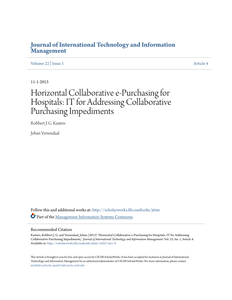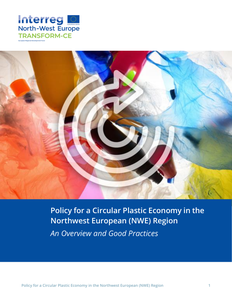Users and potential users of the sharing economy need to place a considerable amount of trust in both the person and the platform with which they are dealing. The consequences of transaction partners’ opportunism may be severe, for example damage to goods or endangered personal safety. Trust is, therefore, a key factor in overcoming uncertainty and mitigating risk. However, there is no thorough overview of how trust is developed in this context. To understand how the trust of users in the sharing economy is influenced, we performed a systematic literature review. After screening, 45 articles were included in a qualitative synthesis in which the results were grouped according to a well‐established trust typology. The results show various antecedents of trust in the sharing economy (e.g. reputation, trust in the platform, and interaction experience) related to multiple entities (i.e. seller, buyer, platform, interpersonal, and transaction). Trust in this economy is often reduced to the use of reputation systems alone. However, our study suggests that trust is much more complex than that and extends beyond reputation. Furthermore, our review clearly shows that research on trust in the sharing economy is still scarce and thus more research is needed to understand how trust is established in this context. Our review is the first that brings together antecedents of trust in online peer‐to‐peer transactions and integrates these findings within an existing framework. Additionally, the study suggests directions for future research in order to advance the understanding of trust in the sharing economy.
LINK
This lessons learned report gives an overview of the output and results of the first phase of the REDUCES project. The introduction states the relevance of combining a policy approach with business model analysis, and defines the objectives. Next, an overview is given of circular economy good business practices in the regions involved. Examining these business practices helped to define the regional needs for circular economy policy. This business approach proved to be a solid base for developing regional circular economy action plans, the last chapter of this report.
DOCUMENT

Are the so-called “new” business models focused on “sharing” actually promoting new behaviour or are they simply using old behaviour of the provider/consumer in a new technological environment? Are the new tech companies in the sharing economy with their “new” business models grabbing too much power, unnoticeably?
DOCUMENT

Horizontal collaborative purchasing (HCP) has often been cited as a way for hospitals to address the challenges of the rising healthcare costs. However, hospitals do not seem to utilize horizontal collaborative purchasing on any large scale, and recent initiatives have had mixed results. Focusing on Dutch hospitals, in this paper we present major impediments for collaborative purchasing, resulting in a first component of our proposed electronic horizontal collaborative purchasing model for hospitals; as a second component it contains a collaborative purchasing typology. A first validation round with hospital purchasing professionals, described separately in Kusters and Versendaal (2011), confirmed four applicable purchasing types and fourteen salient collaborative purchasing impediments. The model is operationalized by including possible information technology (IT) solutions that address the specific fourteen impediments. This model is validated through methodological triangulation of four different validation techniques. We conclude that IT has the potential to support, or overcome, the impediments of HCP. The validation also reveals the need to distinguish between more processrelated, as opposed to social-related, obstacles; the immediate potential for IT solutions is greater for the process-related impediments. Ultimately, we conclude that the collaborative epurchasing model (e-HCP) and implementation roadmap can be used by healthcare consortia, branche organizations, partnering healthcare institutes and multi-site healthcare institutes as a means to help identifying strategies to initiate, manage and evaluate collaborative purchasing practices
DOCUMENT

In this dissertation Maarten ter Huurne investigates why users in the sharing economy trust each other.
DOCUMENT

Across Dutch municipalities, unusual collaborative initiatives emerge that aim to stimulate the creation of value from municipal waste resources. Circular economy literature proposes that experimentation competences are important for developing initiatives towards circular business models and a wide range of innovation frameworks and business model toolkits have been developed to support the development of circular business models based on experimentation.However, more insight is needed to understand how experimentation contributes to the development of urban upcycling initiatives, in particular those where collaborative business models are created. Literature suggest that business model experimentation occurs differently in various collaborative contexts. For example, depending on the type of initiating focal actors involved, collaborative business models develop along different pathways Therefore, we aim to understand how experimentation occurs in various types of collaborative urban upcycling initiatives and we investigate the following research question: How do stakeholders in collaborative urban upcycling initiatives use experimentation to develop circular business models?
DOCUMENT

Introduction: The Netherlands has been known as one of the pioneers in the sharing economy. At the beginning of the 2010s, many local initiatives such as Peerby (borrow tools and other things from your neighbours), SnappCar (p2p car-sharing), and Thuisafgehaald (cook for your neighbours) launched that enabled consumers to share underused resources or provide services to each other. This was accompanied by a wide interest from the Dutch media, zooming in on the perceived social and environmental benefits of these platforms. Commercial platforms such as Uber, UberPop and Airbnb followed soon after. After their entrance to the market, the societal debate about the impact of these platforms also started to include the negative consequences. Early on, universities and national research and policy institutes took part in these discussions by providing definitions, frameworks, and analyses. In the last few years, the attention has shifted from the sharing economy to the much broader defined platform economy.
MULTIFILE

This article investigates the phenomenon of rebound effects in relation to a transition to a Circular Economy (CE) through qualitative inquiry. The aim is to gain insights in manifestations of rebound effects by studying the Dutch textile industry as it transitions to a circular system, and to develop appropriate mitigation strategies that can be applied to ensure an effective transition. The rebound effect, known originally from the energy efficiency literature, occurs when improvements in efficiency or other technological innovations fail to deliver on their environmental promise due to (behavioral) economic mechanisms. The presence of rebound in CE contexts can therefore lead to the structural overstatement of environmental benefits of certain innovations, which can influence reaching emission targets and the preference order of recycling. In this research, the CE rebound effect is investigated in the Dutch textile industry, which is identified as being vulnerable to rebound, yet with a positive potential to avoid it. The main findings include the very low awareness of this effect amongst key stakeholders, and the identification of specific and general instances of rebound effects in the investigated industry. In addition, the relation of these effects to Circular Business Models and CE strategies are investigated, and placed in a larger context in order to gain a more comprehensive understanding about the place and role of this effect in the transition. This concerns the necessity for a new approach to how design has been practiced traditionally, and the need to place transitional developments in a systems perspective. Propositions that serve as theory-building blocks are put forward and include suggestions for further research and recommendations about dealing with rebound effects and shaping an eco-effective transition. Thomas Siderius, Kim Poldner, Reconsidering the Circular Economy Rebound effect: Propositions from a case study of the Dutch Circular Textile Valley, Journal of Cleaner Production, Volume 293, 2021, 125996, ISSN 0959-6526, https://doi.org/10.1016/j.jclepro.2021.125996.
DOCUMENT

This document combines four reports on existing regional business support programmes for inclusion or understanding of circular economy (CE) objectives, deliverable DT3.1.2 from the transform-CE project. Besides a general overview on national and regional level, the focus is on a selection of national and regional programmes aimed at the plastics industry. After explaining the format to structure the programmes, the results for the four regions are presented: Greater Manchester (UK), Rhineland Palatinate and North-Rhine Westphalia (DE), Wallonia (BE), Central Netherlands (NL).
MULTIFILE

Collaborative Online International Learning (COIL) is often framed as an example of a broader practice known as Virtual Exchange (VE). The term Virtual Exchange has increasingly been used as an attempt to unify a fragmented field of Higher Education practice and is often used interchangeably with the term COIL. However, the design of COIL, with its strong focus on collaborative and intercultural learning, is often very different to other VE initiatives. Labelling all VE initiatives, including COIL, generally as VE, can lead to both educators and researchers having difficulty identifying and distinguishing COIL. Therefore, the purpose of this paper is to provide a critical review of VE and define COIL and its key characteristics. This article also describes how theory can inform practice and explains why continued interchangeable use of the term COIL with the umbrella term Virtual Exchange is unhelpful for future research and practice.
DOCUMENT
